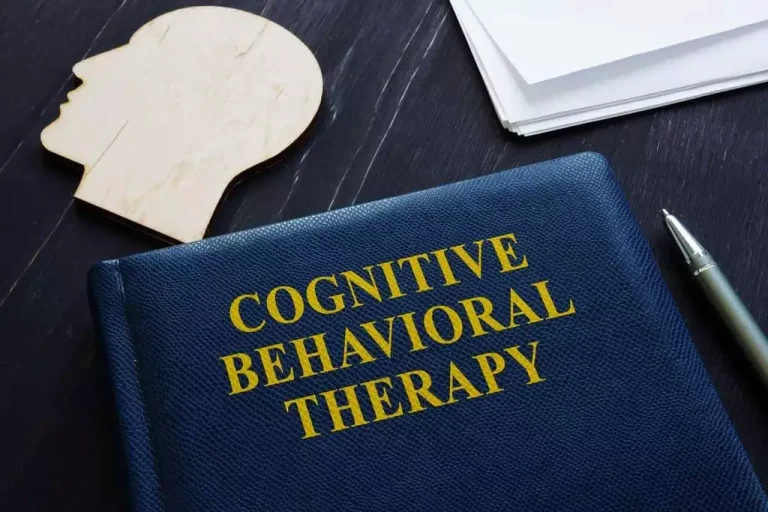
Reduced REM sleep can leave you with brain fog and fatigue the following day. This article discusses the science behind why alcohol makes you sleepy, how to minimize https://ecosoberhouse.com/ drowsiness while drinking, and the broader effects alcohol has on your sleep and overall health. Many people experience a wave of sleepiness after consuming alcohol.

Alcohol Detox and Rehab Treatment
Memory impairment, particularly in the form of anterograde amnesia, can make it challenging to form new memories and retain new information. Individuals may struggle to recall recent events, conversations, or even perform familiar tasks. This memory loss can have a profound impact on personal relationships, work, and overall quality of life.
- Don’t assume that taking a vitamin B1 vitamin will be enough to prevent problems.
- It helps the body process fats and proteins and break down carbohydrates.
- But when you ingest too much alcohol for your liver to process in a timely manner, a buildup of toxic substances begins to take a toll on your liver.
- Research shows that people with consistently poor sleep quality maintain high cortisol levels throughout the day, including at bedtime.
- He also serves as medical coordinator and content writer for Gerocare Solutions, for which he also volunteers as a health advisor/consultant for the elderly.Dr.
- Patients who have developed KP require longer stays and extensive physical and cognitive rehabilitation to improve symptoms like uncoordinated muscle movement and mental confusion.
What Is the Standard Treatment for Wernicke-Korsakoff Syndrome?
- Malnutrition resulting from alcohol addiction is a common risk factor for this condition.
- While unsettling, the words are memorable short descriptors of a disease that can affect long-term alcoholics at some point in the trajectory of their addiction.
- We may be paid a fee for marketing or advertising by organizations that can assist with treating people with substance use disorders.
These symptoms occur together or separately and in varying degrees of severity. Some people experience only a few, while others develop many of the symptoms. People showing signs of Wernicke’s are given thiamine supplements. It could also potentially prevent a severe, untreatable, and possibly fatal condition.
What Is Alcohol-Induced Psychosis?
Alcoholism can have a profound impact on the brain, and one of the ways it can damage this vital organ is through something called a wet brain. More formally known as Wernicke-Korsakoff’s Syndrome (WKS), it develops slowly over time and is among the most devastating alcohol long-term effects. As such, it generally is not noticeable until the brain has been consistently exposed to alcohol for long periods. This is why the nearly all individuals with wet brain syndrome also have chronic alcoholism. A devastating disease, it is vital that people understand what is the wet brain. If you’re concerned about vitamin B1 depletion or know someone experiencing co-occurring wet brain symptoms as a result of drinking alcohol, it’s essential that you get professional help.
Wernicke-Korsakoff Syndrome Complications
- Experts recommend avoiding alcohol at least four hours before bedtime to prevent adverse effects on sleep.
- WKS has been shown to have a low prevalence based on the reported cases found in autopsies.
- Alcoholics with more than 10 years of heavy drinking, previous withdrawal episodes, and delirium tremens have a higher risk of developing Wernicke-Korsakoff syndrome.
- This can lead to a serious neurological disorder known as “wet brain syndrome”—better known in the medical community as Wernicke-Korsakoff syndrome.
- Alcohol-induced psychosis involves experiencing hallucinations, delusions, or both while consuming alcohol or during withdrawal periods.
Treatment can prevent progression to Korsakoff psychosis, which is not reversible or treatable. Early intervention is vital in the management of Wernicke-Korsakoff syndrome. Timely recognition and treatment can significantly improve the chances of recovery and reduce the risk of long-term complications. However, diagnosing this syndrome can be challenging, as there is no specific laboratory test or imaging procedure to confirm it. Physicians rely on professional judgment and a combination of clinical evaluations and medical history. In addition to memory problems, individuals with Wernicke-Korsakoff syndrome may experience difficulties with executive functions, such as planning, problem-solving, and decision-making.

Alcohol-induced psychosis in the form of hallucinations is common in delirium tremens, occurring approximately 12 hours after stopping alcohol intake. The hallucinations may be primarily visual but can also include auditory and tactile, or touch, hallucinations. When this happens, it’s known as “secondary psychosis,” meaning it’s psychosis occurring secondary to another condition. In this case, psychosis is secondary to intoxication, withdrawal, or alcohol use disorder (AUD). Alcohol-induced psychosis can happen after intoxication, during withdrawal, or it can be chronic among people living with alcohol use disorder (AUD). It is important to note that thiamine supplementation should continue until the patient is no longer at risk, such as as long as they are consuming alcohol.
Worsens Sleep Apnea
A variety of other symptoms can accompany alcohol-induced psychosis. These may arise from the other effects of alcohol on your body or from withdrawal. Psychotic symptoms what is mush brain in alcohol-induced psychosis are directly linked to alcohol use. They can’t be attributed to any other cause, like another underlying mental health condition.
The earlier someone seeks help for their drinking, the quicker they can resume a normal life. They’ll also have a greater likelihood of avoiding serious medical and psychological complications from alcoholism. This includes helping to prevent the development of Wernicke-Korsakoff syndrome. After all, no one wants to suffer from mush brain or go through lingering mush brain alcohol effects. In most cases, symptoms of Korsakoff syndrome are preceded by symptoms of Wernicke encephalopathy.

